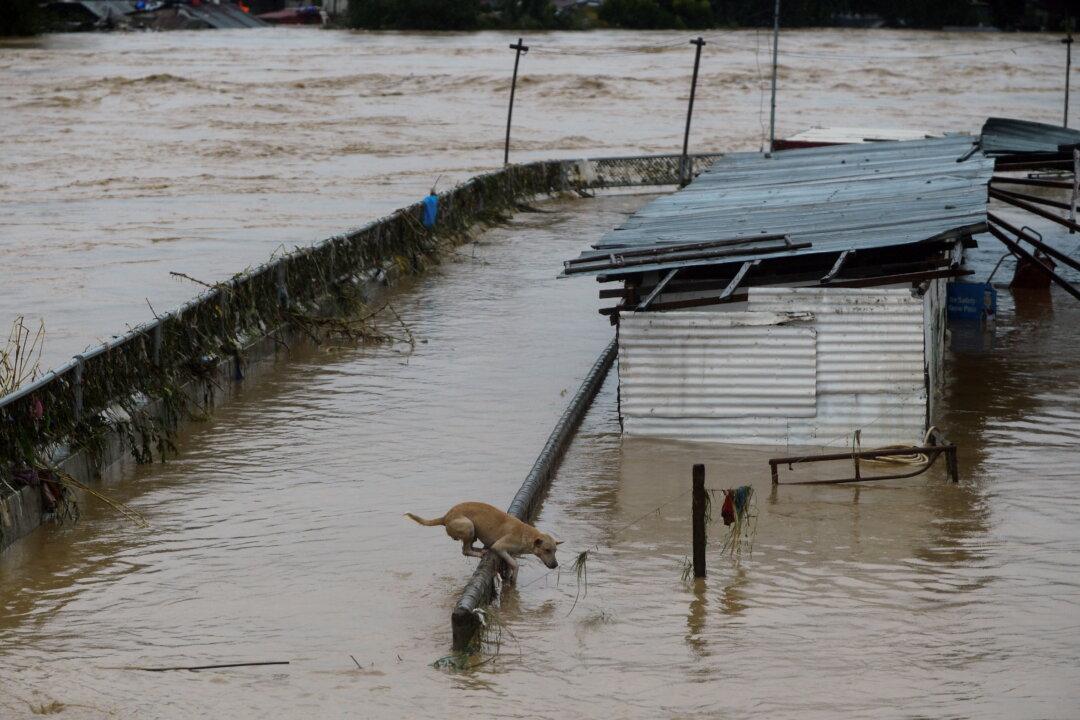MANILA—Philippine President Rodrigo Duterte on Thursday ordered government agencies to hasten relief efforts after a powerful typhoon killed at least seven people and unleashed some of the worst flooding in years in the capital Manila.
Duterte cut short his attendance of a virtual meeting of Southeast Asian leaders to inspect the damage from Typhoon Vamco, moments after a speech during which he urged his counterparts to urgently combat the effects of climate change.





